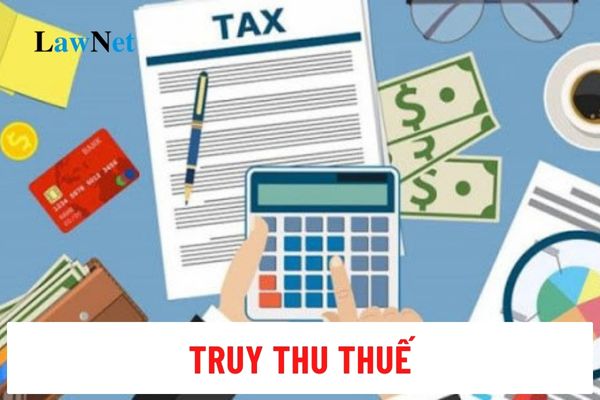What is the statute of limitations for tax collection in Vietnam?
What is the statute of limitations for tax collection in Vietnam?
Based on Article 8 of Decree 125/2020/ND-CP, the the statute of limitations for tax collection in Vietnam is regulated as follows:
(1) Beyond the statute of limitations for administrative sanctions on tax violations, taxpayers are not subject to penalties but must still pay the full amount of back taxes (owing taxes, evaded taxes, exempted, reduced, or refunded taxes that are higher than prescribed, late payment interest) to the state budget within a ten-year period from the date of detection of the violation.
In cases where taxpayers do not have a taxpayer registration, they must pay the full amount of owing taxes, evaded taxes, and late payment interest for the entire period before the date of detection of the violation.
(2) The above tax collection time limit only applies to taxes under tax law and other amounts declared and paid by organizations and individuals to the state budget.
For revenues from land or other amounts determined by competent authorities concerning the financial obligations of organizations and individuals, the competent authorities shall determine the tax collection time limit according to the regulations on land law and related laws, but not less than the tax collection time limit specified in (1).

What is the statute of limitations for tax collection in Vietnam? (Image from the Internet)
What are principles of tax declaration in Vietnam?
According to Article 42 of the Law on Tax Administration 2019, tax declaration is as follows:
Tax declaration and calculation principles
1. Taxpayers must accurately, honestly, and fully declare the contents in the tax declaration form according to the model prescribed by the Minister of Finance and submit all documents and materials required in the tax declaration dossier to the tax administration agency.
2. Taxpayers shall self-calculate the payable tax amount, except for cases where tax calculation is performed by the tax administration agency according to the regulations of the Government of Vietnam.
3. Taxpayers shall declare tax and calculate tax at the local tax agency where their head office is located. In cases where taxpayers account centrally at their head office and have dependent units in other provincial-level administrative units than where the head office is located, taxpayers shall declare tax at the head office and calculate, allocate tax obligations to be paid to each locality where the state budget revenue is enjoyed. The Minister of Finance shall provide specific provisions on this clause.
The tax declaration must be accurate, honest, and complete in the content of the tax declaration form as prescribed by tax laws and submitted with all required documents and materials in the tax declaration dossier to the tax administration agency.
What are the prohibited acts in tax administration in Vietnam?
According to Article 6 of the Law on Tax Administration 2019, there are 08 prohibited acts in tax administration, including:
- Collusion, connection, and concealment between taxpayers and tax officials or tax administration agencies to transfer profits, evade taxes.
- Causing troubles and harassment to taxpayers.
- Exploiting tax positions to embezzle or illegally use tax money.
- Intentionally failing to declare or declare tax inaccurately, untimely, or incompletely regarding the payable tax amount.
- Obstructing tax officials from performing their public duties.
- Using another taxpayer’s tax code to commit illegal acts or allowing others to use one's tax code inconsistently with the law.
- Selling goods, providing services without issuing invoices as prescribed by law, using illegal invoices and illegitimately using invoices.
- Distorting, misusing, unauthorized accessing, and destroying taxpayer information systems.
- The act of not issuing invoices is a legal violation and will be subject to administrative penalties.

